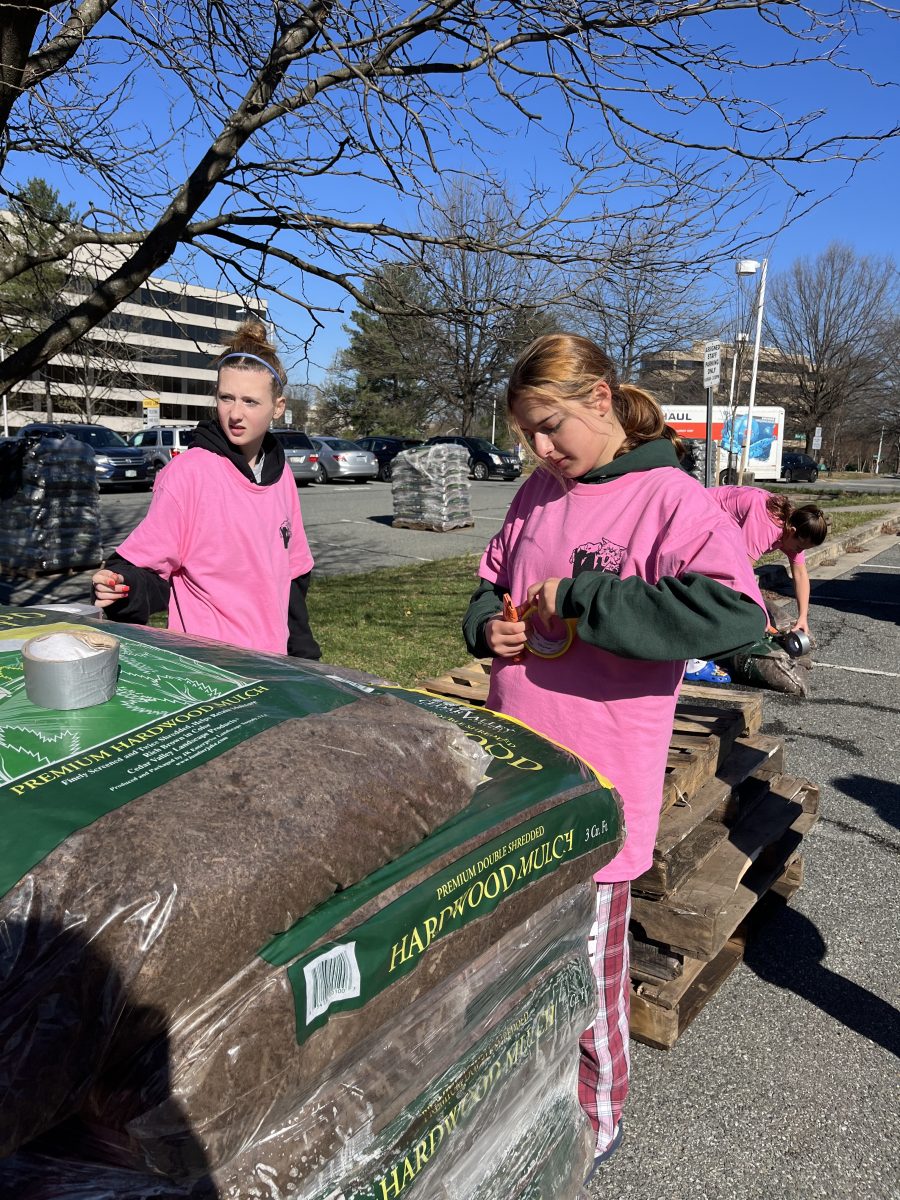From promoting organic foods through this year’s Eco Café to simple diet and exercise, this April, the WJ community has been focusing on physical and environmental health. In the spirit of Earth Day and the approaching bikini season, The Pitch decided to focus on those members of the community who have chosen to devote themselves to “green lifestyles” that promote the environment and their own personal health.
Going Vegan
No meat. No eggs. No milk, no butter, no cheese. The all-vegan diet cuts out all animal products, ranging from the animal’s meat to any and all products that can be derived from the animal. This is the diet that junior Johna Applestein has grown up in. She and her family members range in their commitment to veganism from the full-fledged rule following vegan to the occasional milk-containing-product consumer, to Applestein herself; the “stay at home” vegan who eats as a vegetarian outside of the house.
“I’m vegan for the most part,” said Applestein. “We’re basically vegan at home. We drink soy milk, we don’t eat cheese and eggs and stuff, but if something happens to have milk in it, we’ll probably eat that.”
Applestein expects for this lifestyle not only to continue to be part of her life, but for her dedication to veganism to grow. And, beneficially, there are a growing number of resources for vegans and vegetarians to accommodate their dietary and environmental aspects.
“My sister goes to Dickinson and the vegetarian option is automatically vegan,” said Applestein. “Actually, the other day they had a ‘no-meat’ day in the cafeteria as an environmental activism program.”
As part of the nation’s efforts to shift towards healthier dietary lifestyles, veganism and vegetarianism have become more common in American society. And, according to Applestein, eliminating most or all animal products not only provides health benefits to your body, but also helps to green the earth.
“A lot of Americans actually get too much protein and fat and you eat less as a vegan,” said Applestein. “I don’t eat McDonalds and such, so I get healthier foods. It’s also environmentally friendly because you don’t have to use all the land and resources to raise the animals and it’s healthy.” In addition, veganism also greatly reduces the waste, pollution and deforestation caused by mass raising of animals.
Applestein doesn’t only avoid eating animals to help save the planet; her entire family contributes to preserving the environment by cutting down on their daily energy output.
“We do a lot of things,” said Applestein. “We hang up our laundry instead of using the dryer, I bring my lunch instead of buying which is more environmentally friendly since I’m not buying or throwing away bags [and] we compost and recycle.”
Going Sustainable and Organic
Organic foods are pricey and are often shipped to local grocery stores from across the country and even internationally in the winter seasons. To receive the benefits of going organic while saving money and reducing their carbon footprints, some members of the WJ community have chosen to start their own vegetable and herb gardens.
Senior Miles Lifson and his family grow some of their own food to promote the environment and the organic movement.
“As part of my family’s attempt to use organic ingredients in our food, we have started an organic garden in our backyard,” said Lifson. “Later this year we will have fresh tomatoes, lettuce, Swiss chard and strawberries for our cooking as well as several different herbs.”
Science teacher Khanh Chau keeps her own vegetable and herb garden in Room 248.
“I grow my own vegetables,” said Chau. “I try to eat as seasonally as I can so less food is imported from elsewhere.”
After the AP Biology trip to Smith Island in 2007, Chau was inspired to join a CSA (Community Supported Agriculture). Members of a CSA pay a fee four months before a new season starts to buy shares of a local farmer’s weekly harvest. Members then agree to pick up the weekly share at a prescribed location. Chau’s CSA, The Spiritual Food CSA, provides fruit, grains, legumes, dairy products and special products from other special farms in exchange for a $1950 registration fee.
“CSA involves commitment, community and trust,” states the Spiritual Food CSA website. “It also involves high quality nutritious and great tasting fresh food, eating local and seasonal, and developing and practicing a spirit of services.”
CSAs promote the environment and local farmers by reducing the consumption of fossil fuels used through food transportation. The Spiritual Food CSA features the biodynamic food movement that is a non-chemical agricultural movement that pre-dates the organic movement.
After thorough research, Chau chose her CSA based on its food variety and the availability of crops of Asian origin.
To learn more about CSAs and biodynamic food visit:
http://sites.google.com/site/spiritualfoodcsa/






